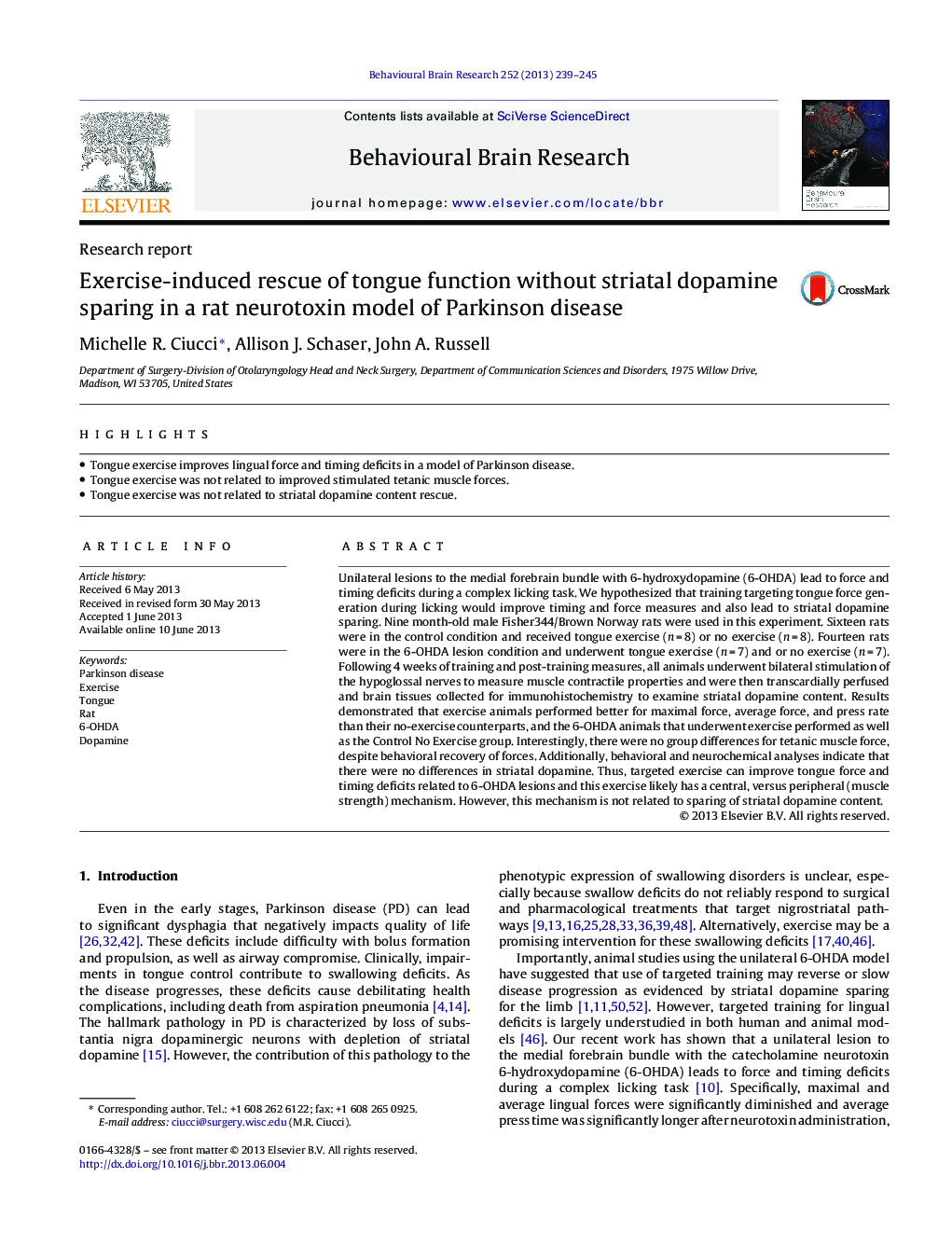| کد مقاله | کد نشریه | سال انتشار | مقاله انگلیسی | نسخه تمام متن |
|---|---|---|---|---|
| 4312613 | 1612980 | 2013 | 7 صفحه PDF | دانلود رایگان |

• Tongue exercise improves lingual force and timing deficits in a model of Parkinson disease.
• Tongue exercise was not related to improved stimulated tetanic muscle forces.
• Tongue exercise was not related to striatal dopamine content rescue.
Unilateral lesions to the medial forebrain bundle with 6-hydroxydopamine (6-OHDA) lead to force and timing deficits during a complex licking task. We hypothesized that training targeting tongue force generation during licking would improve timing and force measures and also lead to striatal dopamine sparing. Nine month-old male Fisher344/Brown Norway rats were used in this experiment. Sixteen rats were in the control condition and received tongue exercise (n = 8) or no exercise (n = 8). Fourteen rats were in the 6-OHDA lesion condition and underwent tongue exercise (n = 7) and or no exercise (n = 7). Following 4 weeks of training and post-training measures, all animals underwent bilateral stimulation of the hypoglossal nerves to measure muscle contractile properties and were then transcardially perfused and brain tissues collected for immunohistochemistry to examine striatal dopamine content. Results demonstrated that exercise animals performed better for maximal force, average force, and press rate than their no-exercise counterparts, and the 6-OHDA animals that underwent exercise performed as well as the Control No Exercise group. Interestingly, there were no group differences for tetanic muscle force, despite behavioral recovery of forces. Additionally, behavioral and neurochemical analyses indicate that there were no differences in striatal dopamine. Thus, targeted exercise can improve tongue force and timing deficits related to 6-OHDA lesions and this exercise likely has a central, versus peripheral (muscle strength) mechanism. However, this mechanism is not related to sparing of striatal dopamine content.
Journal: Behavioural Brain Research - Volume 252, 1 September 2013, Pages 239–245